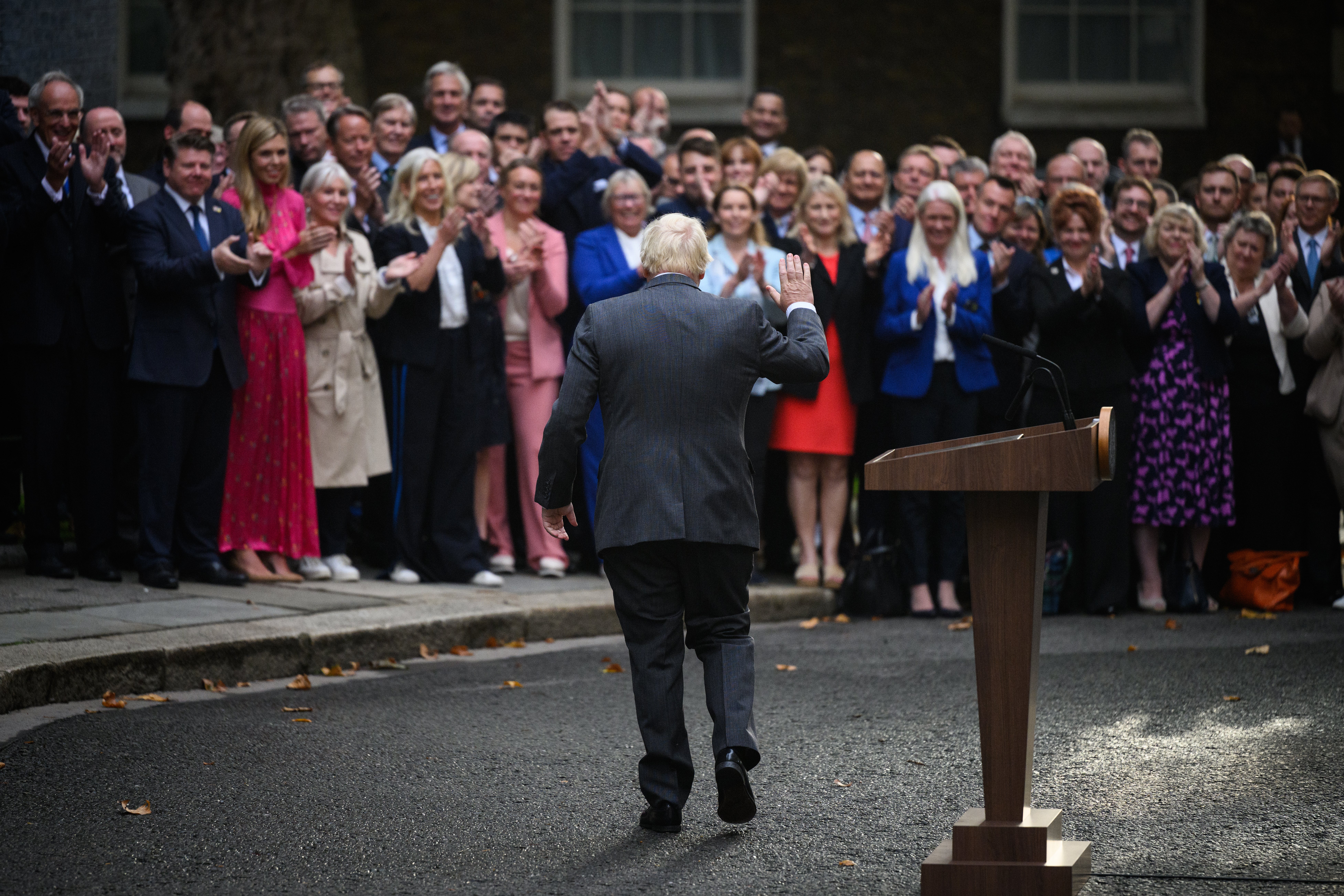Why did Boris Johnson withdraw if he had the nominations?
The former prime minister said he needed a united party in parliament, but there was another reason for pulling out, writes John Rentoul


Sir Graham Brady, the rule-keeper, umpire and returning officer for Conservative leadership elections, has confirmed that Boris Johnson did have the 102 nominations he needed to take the contest to a vote of the members.
In an interview with the BBC’s North West Tonight on Friday, Sir Graham said that “two candidates” had reached the threshold, and “one of them decided not to then submit his nomination”. At the time, I was sceptical about the claim made on Johnson’s behalf that he had the backers he needed among MPs, but we now know that he could have forced the election to go to the next stage.
Instead, he withdrew and allowed Rishi Sunak to be elected unopposed, after Penny Mordaunt failed to secure enough backing.
So why did he do it? He gave one reason in his statement on Sunday 23 October announcing his withdrawal: “There is a very good chance that I would be successful in the election with Conservative Party members – and that I could indeed be back in Downing Street on Friday. But in the course of the last days I have sadly come to the conclusion that this would simply not be the right thing to do. You can’t govern effectively unless you have a united party in parliament.”
That is a reason, even if it may not be the whole explanation. Even with 102 MPs supporting him, maybe a handful more, Johnson would have faced a parliamentary party in which around 200, or two-thirds, did not support him. It would have been difficult to fill all the ministerial posts – he had after all been ousted in the first place by a mass resignation of ministers – and any legislation would have been vulnerable to rebellion.
But I think there was another reason: Johnson’s fear of failure. Despite an organised campaign among party members to protest against his removal as leader, and despite opinion polls suggesting that he was still popular among them, he could not have been sure that he would win an election against Sunak.
To keep up to speed with all the latest opinions and comment, sign up to our free weekly Voices Dispatches newsletter by clicking here
Sunak had won 43 per cent of the members’ vote against Liz Truss, and had been vindicated by the markets’ response to her policies. Many members had received a short, sharp lesson in the essentials of market confidence, and would have been aware that the markets were nervous about the return of Johnson to No 10. Elementary psychology teaches us that people often hold on to their beliefs more tightly when proved wrong, but Johnson could not be sure that enough of his supporters would stick with him.
I think he feared a humiliating defeat at the hands of his former subordinate, which would have put an end to any hopes of a later leadership bid – just as he did in 2016, when he withdrew from that contest after Michael Gove declared he was running.
This way, Johnson can keep alive his fantasy of being recalled like Cincinnatus from his plough when the nation needs him.
Yours,
John Rentoul
Chief political commentator
Join our commenting forum
Join thought-provoking conversations, follow other Independent readers and see their replies
Comments
Bookmark popover
Removed from bookmarks